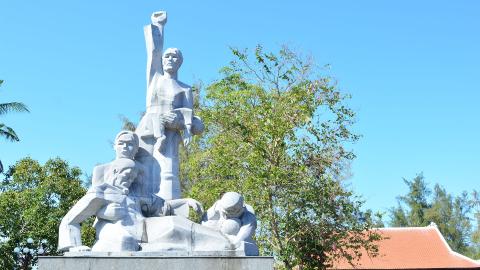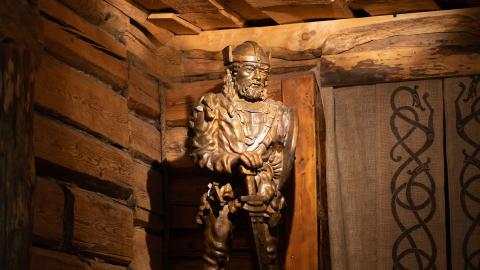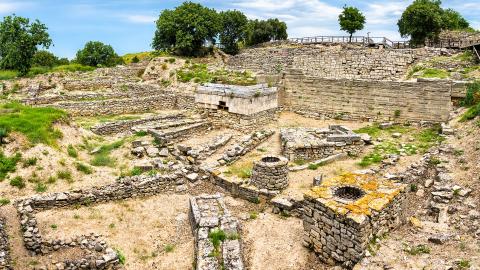King Philip IV
In the Show
Philip may be one of the most formidable monarchs in Europe, but with great power come great difficulties – both in the corridors of power and in the private chambers of his family. Famed for his handsome appearance – there’s a reason why he’s nicknamed Philip the Fair – the king is also charming and charismatic, yet his looks and magnetism mean little to his wife Joan, who has become more and more withdrawn within their marriage.
Philip is frustrated by his inability to heal their relationship and rekindle Joan’s affections, and he’s also got the vexing issue of his daughter Isabella to deal with. She’s ready for marriage, but the choice of husband could divide father and daughter. Philip also finds it increasingly hard to control his emotions – his anger and his frustration – in his dealings with other power-brokers in Europe, including the Pope. Ultimately, Philip depends on the wisdom of the man closest to him, the Templar knight Landry, but the king is unaware of a secret that may yet tear their friendship apart.
In History
“He is neither man nor beast. He is a statue.” This was one contemporary description of Philip IV, which says a lot about how aloof, stubborn and unreadable he could be. He was also fantastically ambitious, his brazen appetite for domination leading him into a direct confrontation with the Templar order.
In fact, Philip IV didn’t so much “confront” the Templars as crush them utterly. Why? His motivations have been debated by historians over the centuries, though the most commonly agreed reason is that the king was financially indebted to the Templars, who by this time presided over vast amounts of land and wealth. It’s also been suggested he was resentful and jealous about the Templars’ political power, both within France – his own kingdom – and abroad. By moving decisively against them, Philip stood to take control, not only of their lavishly-stuffed coffers, but potentially of their foreign territories as well.
“He is neither man nor beast. He is a statue.”
And so, on 13 October 1307 13 October 1307 – a Friday, which some believe is why Friday the 13th
is now linked with bad luck – the Templars of France were abruptly arrested by Philip’s minions. The hapless knights, once the most venerated champions of Christianity in the world, found themselves declared “enemies of the faith” and at the mercy of torturers, who forced them to admit dreadful acts of heresy.
Stories were spread of the Templars’ perverse rituals, which were said to include spitting on the Cross, homoerotic behaviour and the worship of false idols. Philip sent letters out to other monarchs to announce these grotesque crimes against Christ, but he was met with quite a few raised eyebrows. Edward II of England retorted that the “detestable heresies” were “more than it is possible to believe”. Meanwhile, James II of Aragon said that Philip’s claims had caused “astonishment but also disquiet”.
Many saw the persecution of the Templars as a blatant power-grab by Philip. A writer of the time even wrote to James II of Aragon to say that “the pope and the king did this in order to have [the Templars’] money” and because they wanted to bring the order under the control of the French crown.
Even the Pope told Philip that the attack on the Templars implied “an insulting contempt for us and the Church of Rome”. Yet, despite his intervention and many Templars retracting their forced confessions, the days of the order were numbered. The Pope was eventually brought to heel by Philip (turning against the Templars, he would condemn the “execrable outrage of the sodomites”), and members of the order were tied to stakes and burnt alive.
The leader of the Templars, the elderly Grand Master Jacques de Molay, was himself incinerated in 1314. Legend has it that he cursed his captors as the flames began to lick his body. Perhaps he did, because Philip IV would die later that very year.
Watch Knightfall Tuesdays at 9pm.
Clue 6: The final victim of an unjust purge was burned at the stake for heresy in 1314.














